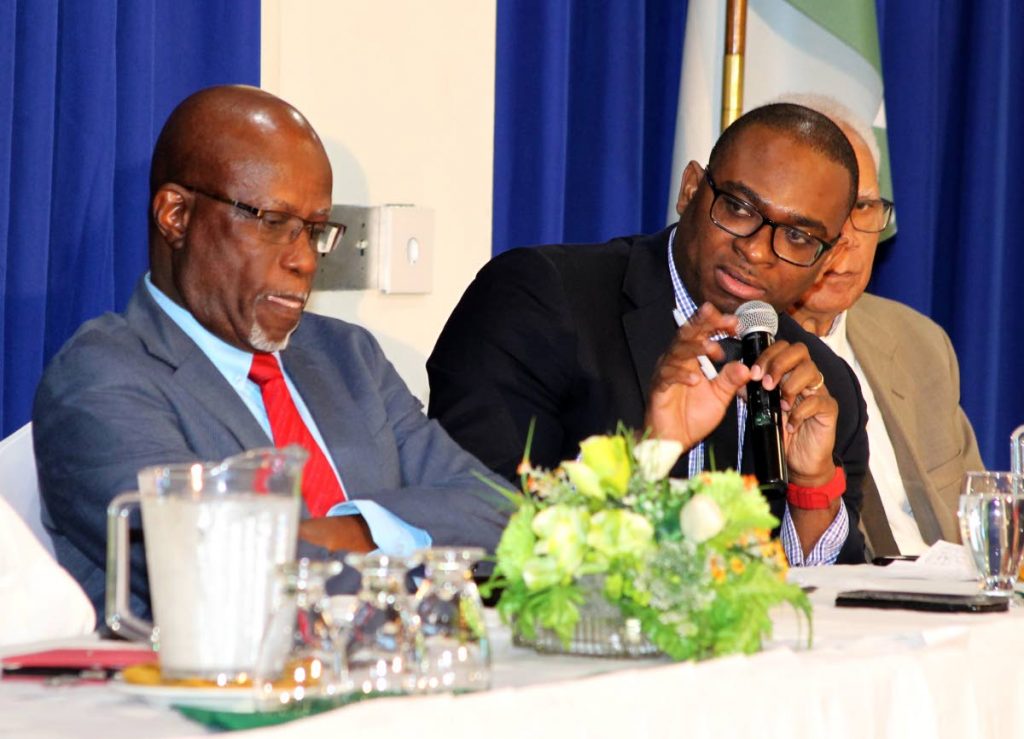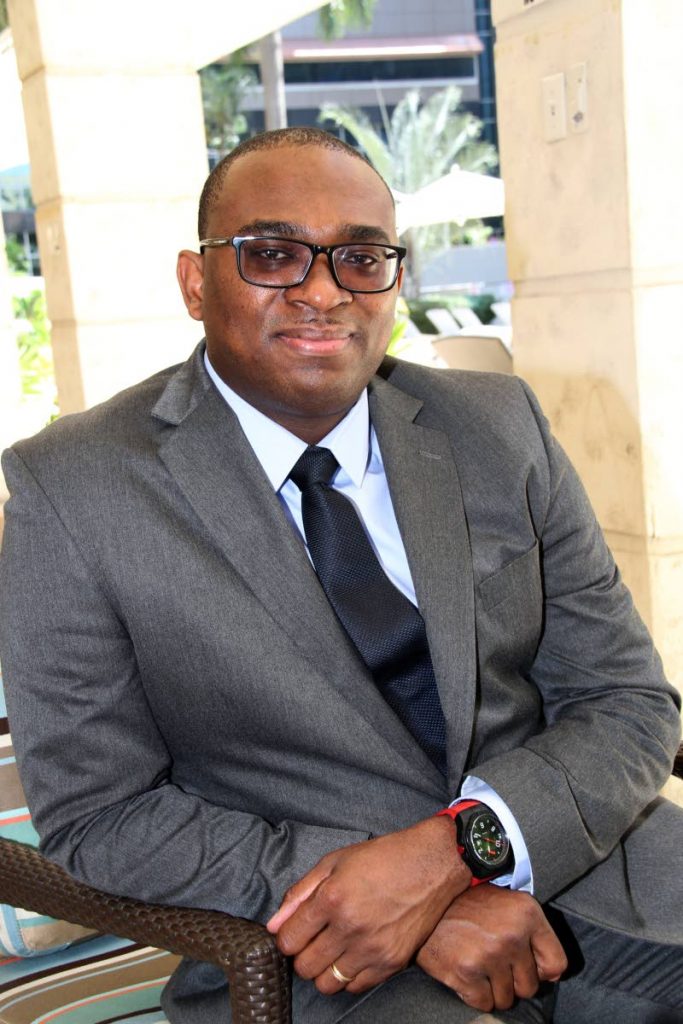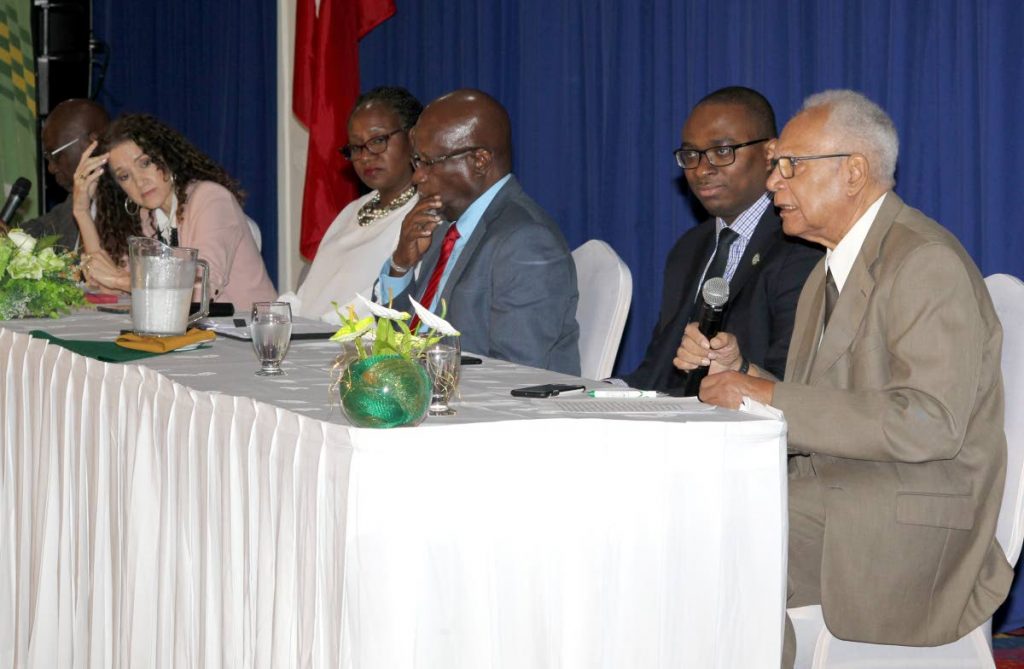Media excellence can fight fake news

Professional excellence. It seems a simple concept, obvious even, and it’s what Jamaican-born British Broadcasting Corporation (BBC) senior announcer, Neil Nunes, believes is the first line of defence for an industry battling the scourge of fake news.
“One of the things I will stress is just doing our job the way we ought to – with rigorous editorial integrity. We would not deliberately do fake news, but let’s root out the inaccuracies in our reporting. Let’s make sure stories aren’t one-sided. So that when we do our work, people might not agree with it but they can say it’s an authoritative account and that we are credible in our reporting,” Nunes told Sunday Newsday in an interview earlier this week at the Radission Hotel in Port of Spain. Nunes was the feature speaker at a fake news forum hosted by the University of the Southern Caribbean (USC) last Tuesday and Wednesday.
Fake news is the deliberate and often malicious attempt to spread misinformation under the guise of journalism. There’s an implicit trust in the news media, and purveyors of fake news latch on to that.

Nunes said, “People trust news. It helps us in our daily lives. News is critically important for holding the powerful to account. It helps us in our democracy and can reform society. When that process is deliberately manipulated, people’s lives can be put in danger. It is that serious.”
He said it was unhealthy and dangerous for the media to be the constant source of criticism because it undermined trust in the media, and trust was the glue that held society together.
And there’s already a level of distrust in the media. A joint Gallup/Knight Foundation poll released in September last year found that over the last decade, 69 per cent of American adults reported that their trust in the media decreased. Globally, Chicago-based global marketing firm Edelman’s 2019 Trust Report shows that while trust in the media has increased by three points from last year, it’s still below the half-way mark, at 47 per cent.
Nunes said, “When the media is attacked for spreading fake news and propaganda, that is dangerous for a number of reasons, not least of which that it discords trust in the media – discords trust in the mainstream and credible sources of information.”
In Trinidad, for example, politicians have begun taking a cue from US President Donald Trump, who has popularised the term “fake news,” especially when referring to media reports that might be deemed unflattering. At the opening ceremony of the fake news conference on Tuesday, Communications Minister Stuart Young, who frequently uses the term in his media briefings, brought up the concept again in his opening remarks, chastising reporters for not fact-checking information and instead relying on social media, suggesting media’s “agenda” was to create panic and insecurity.

Veteran journalist Dr Sheila Rampersad responded to Young, noting the difference between inaccuracy and fake news, countering his arguments about agendas, while pointing out the challenges that local media face when trying to report, including law suits and character-smearing.
Nunes, in his interview, acknowledged that fake news had found a reliable vehicle on social media, even though social media companies have now begun taking steps to mitigate the effects, albeit belatedly. Cambridge Analytica’s use of Facebook, allegedly in attempts to influence elections in the US, and before that, in TT, have been well-publicised, and Facebook has recently taken steps to delete at least 800 fake news accounts from its platform.
But, just like journalists need to have some kind of professional responsibility, Nunes suggests consumers should also have personal responsibility. And, he added, perhaps mainstream media might need to have an educational component to help users spot fake news.
He also urges that people share news responsibly. “We (journalists) have certain professional standards but bloggers online don’t. It’s a constant challenge because technology is just going to get cheaper and more widespread. Yes, efforts have been made to clamp down on fake news, but – and I’ll keep harping on this point – we should differentiate ourselves by being the credible sources of information. We should set the standard.”
Nunes acknowledged that the current state of the media industry globally has had an impact on resources but, despite the cost cuts and higher workloads and the low wages in the industry, “Professional excellence does not come with a price tag.
“Sometimes in this business we lost sight of how fundamentally, critically, vitally important we are. If we as an industry don’t remember our importance then the people outside will have a low estimate of us as well.”
There is a multicplicity of challenges in the industry, he said, and several major companies have had to cut staff – just two weeks ago, major US digital media outlets Buzzfeed and HuffPost, as well as Gannett media, collectively let go 1,000 employees.
Nunes said, “The fact is we face challenging business forces—somebody has to pay for news, somebody has to pay for staff, raw material, and adverts – a lot of which are going to social media and digital space. Lack of resources, limited resources does not help us do service to democracy.”
Journalists also have to resist pressures that come with regulations that can border on censorship, and the attending pressures some may face because of their subject matter and focus. There’s also information overload, where, in a world where news is shared in 240 characters or less, consumers just don’t pay attention to serious, nutrient-rich long-form reporting. And no matter how good local media are, the competition now isn’t just domestic or even regional, but international.
“We have to find ways, not to jazz up our stories, but to tell them in ways that are compelling. It’s going to take great, world-class writing. Excellence is how we fight off fake news. Excellence, not just being good, not just being fine. Excellence is how we secure our future. And part of that excellence is continuing to push the envelope so that we are attractive but credible and methodical,” Nunes said.


Comments
"Media excellence can fight fake news"